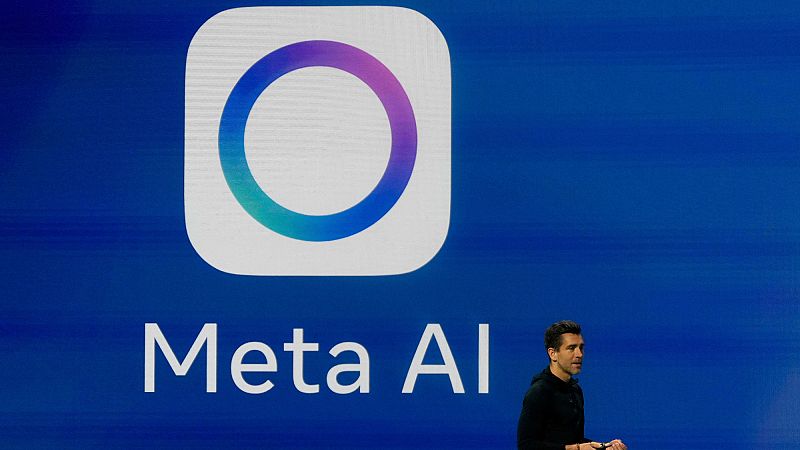
US social media company Meta will not sign the EU’s AI Code of Practice on General Purpose AI (GPAI), the company’s Chief Global Affairs Officer Joel Kaplan said in a statement on Friday.
“Europe is heading down the wrong path on AI. We have carefully reviewed the European Commission’s Code of Practice for GPAI models and Meta won’t be signing it,” he said, adding that the Code “introduces a number of legal uncertainties for model developers, as well as measures which go far beyond the scope of the AI Act.”
The Commission last week released the Code, a voluntary set of rules that touches on transparency, copyright, and safety and security issues, aiming to help providers of AI models such as ChatGPT and Gemini comply with the AI Act.
Companies that sign up are expected to be compliant with the Act and can anticipate more legal certainty, others will face more inspections.
The AI Act's provisions affecting GPAI systems enter into force on 2 August. It will take another two years before the AI Act, which regulates AI systems according to the risk they pose to society, will become fully applicable.
OpenAI, the parent company of ChatGPT, has said it will sign up to the Code once its ready.
Criticism from tech giants
The drafting process of the Code was criticised by Big Tech companies as well as CEOs of European companies, claiming they need more time to comply with the rules.
“We share concerns raised by these businesses that this over-reach will throttle the development and deployment of frontier AI models in Europe, and stunt European companies looking to build businesses on top of them,” Kaplan said.
The Code requires sign off by EU member states, which are represented in a subgroup of the AI Board, as well as by the Commission's own AI Office. The member states are expected to give a green light as early as 22 July. The EU executive said it will publish the list of signatories on 1 August.
On Friday the Commission published further guidance to help companies comply with the GPAI rules.







